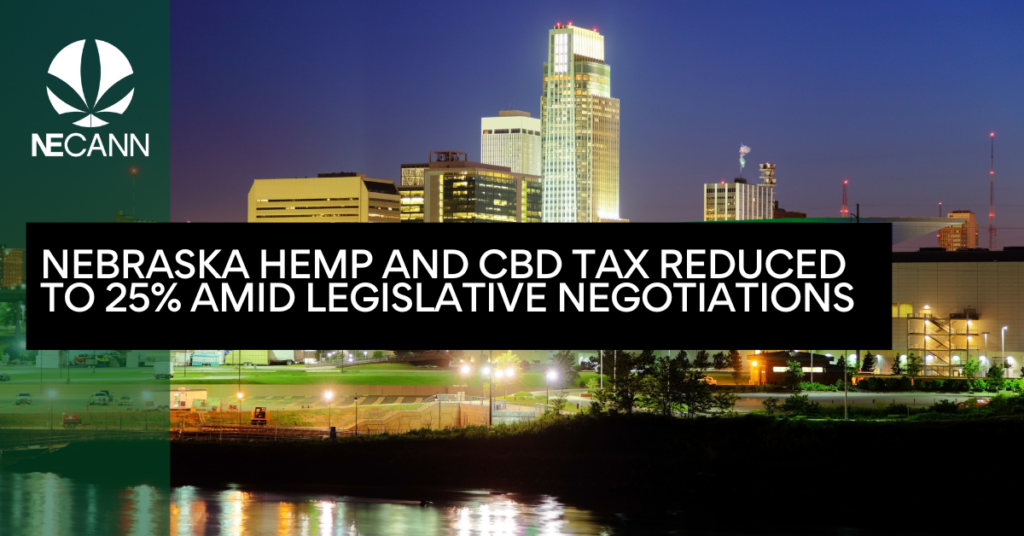An amendment to a Nebraska tax bill has led to a significant reduction in the proposed tax on hemp and CBD, which was initially set at a staggering 100 percent. The new rate now stands at 25 percent, marking a substantial decrease but still significantly higher than sales tax rates imposed by most states on federally legal hemp and CBD products.
The amendment to LB 388, introduced by Sen. Lou Ann Linehan (R), who initially included the 100 percent provision, was passed with a 28–6 vote. The underlying tax bill, with the amended hemp tax rate, did not receive a final vote this week, with further deliberations expected next Thursday.
Sen. Anna Wishart (D), who has advocated for marijuana reform in Nebraska, explained that the reduction in the tax rate was the result of negotiations between lawmakers and representatives of Nebraska’s CBD industry. She emphasized the concerns raised by CBD companies in the state regarding the detrimental impact the proposed 100 percent tax could have on their businesses, leading to collaborative efforts to lower the tax rate to a more manageable 25 percent.
While Sen. Linehan’s office did not immediately respond to requests for comment, she previously indicated that the 100 percent tax proposal served as a starting point for negotiations. Some lawmakers argued during earlier debates that the proposed tax rate was disproportionate and out of line with rates in other states.
Despite the reduction, debates continue regarding the potential legalization of marijuana in Nebraska. While neither medical nor adult-use cannabis is currently legal in the state, activists are actively working to change this. However, opposition from certain lawmakers, including the governor, remains a significant hurdle.
The amendment to the tax bill is part of a broader discussion on state revenue sources, with property taxes being a contentious issue. While some lawmakers advocate for raising sales taxes to alleviate reliance on property taxes for school funding, others oppose the overall increase in taxes, particularly emphasizing the impact on lower-income Nebraskans.
The proposed tax amendment comes amidst a surge in hemp-derived products, including those containing intoxicating cannabinoids like delta-8 THC. Last year, Nebraska’s attorney general filed a lawsuit against retailers in the state over the sale of delta-8 products.
Despite ongoing legislative challenges, activists are determined to advance medical cannabis initiatives, with recent polling indicating strong support among Nebraska residents. However, previous attempts to enact marijuana reform legislatively have faced obstacles in the conservative legislature.
As discussions on tax reform and marijuana legalization continue, Nebraska remains a focal point for cannabis advocacy and policy debate, with stakeholders on both sides actively engaged in shaping the state’s cannabis landscape.
Stay updated with the latest business news by subscribing for daily updates.



